Is Organic Laundry Detergent Best?
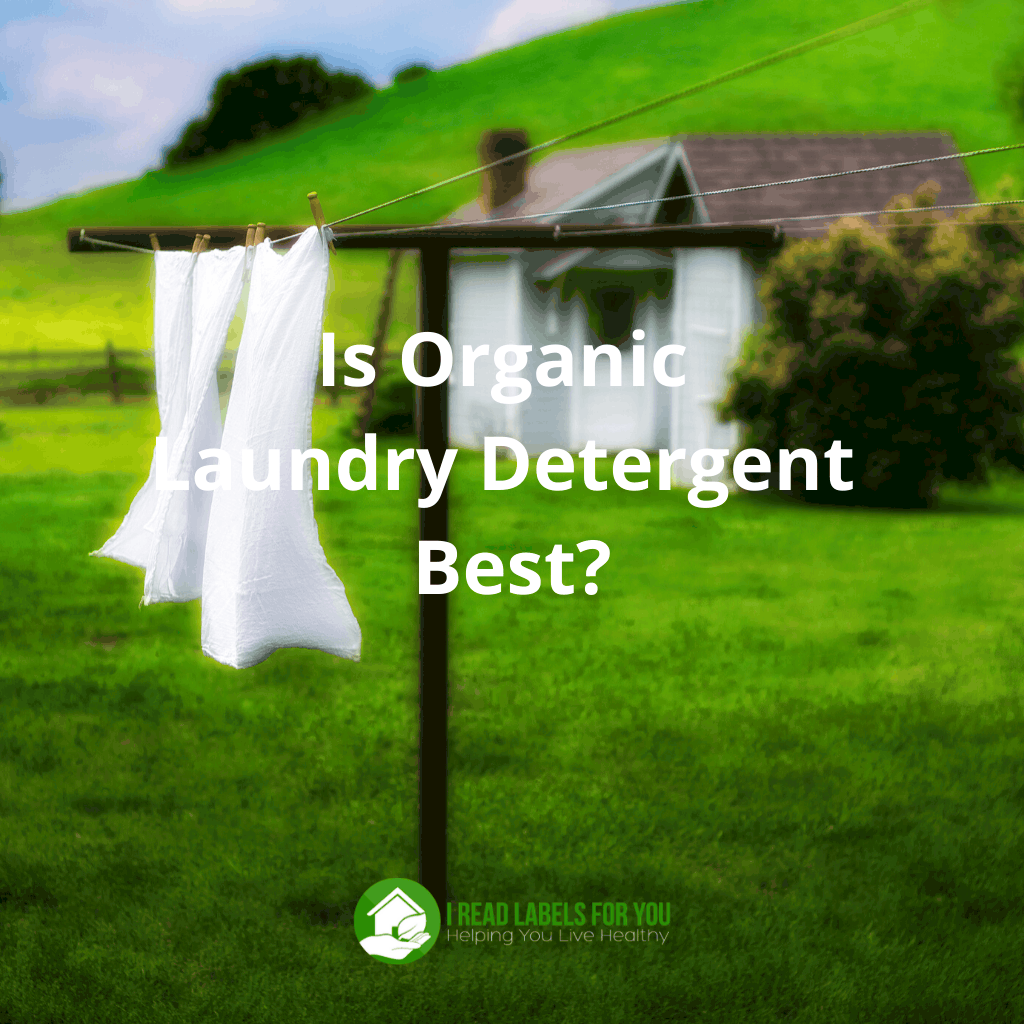
When it comes to the term “organic,” as a society, we have come to a certain understanding. Specifically, it signals health and safety. Besides, the seal of an organic certification is what makes the product credible and trustworthy to consumers. Oftentimes, it is the seal that causes us to choose a product without giving it a second thought. While I do promote certified organic products, I wonder if organic laundry detergent is always the best choice. Keep reading to find out which clean laundry detergent I use and recommend. Also, to estimate the safety of your detergent, check out my Guide to the Safest Laundry Detergents.
What is in conventional laundry detergents?
A while ago, Procter & Gamble reduced the amount of carcinogenic 1,4-dioxane in their Tide detergents. Yes, your laundry detergent may contain 1,4-dioxane, a petroleum chemical that may cause cancer and is a significant groundwater contaminant. No, that does not mean that you will get cancer from wearing clothes washed with 1,4-dioxane, but you might be drinking and eating it afterward.
After strong consumer pressure, many detergents started boasting 1,4-dioxane-free labels. However, it is unclear if the claims were verified by independent studies.
Also, many detergent manufacturers claimed to produce 100% natural detergents, most of which were made with coconut oil-derived surfactants. While this is a huge step in the right direction, it is not fully satisfying. First, saying ‘coconut oil-based surfactant’ implies that one of the raw ingredients is coconut oil. The emphasis should be on the derivation process, not on the coconut oil.
To clarify, the derivation process involves chemicals and may be associated with trace impurities that come with these chemicals. Besides, the environmental impact is still under investigation.
For example, consider the derivation process of cocamidopropyl betaine, one of the so-called “coconut oil-derived” surfactants. It involves adding harsh chemicals, e.g. dimethylaminopropylamine, that can remain in the final product as contaminants. Notice, though, that they are not listed as ingredients.
Further, studies have shown that people may experience allergies from the contaminants or the surfactants themselves. In short, we do not fully understand the long-term impact of these surfactants on human health and the environment.
What is organic laundry detergent?
To begin with, a clean laundry detergent can get an organic certification from an official certifying organization such as the United States Department of Agriculture (USDA). However, there is a requirement to adhere to. Namely, 95% of the product ingredients must be individually organic. In turn, for these ingredients to be able to even qualify for an organic certification, they must be of agricultural origin.
Furthermore, they must meet the USDA organic standards for production, handling, processing, and labeling. That is to say, the production operators, the handlers of the ingredients, and the manufacturer of the final product must first get their certification from an organic certifying agent accredited by the USDA.
Generally, this means that the ingredients are minimally processed and are derived without adding non-agricultural ingredients. For example, if oil is derived with a petroleum solvent such as hexane, it does not qualify as organic. The processes that meet organic standards are cold pressing, filtration, infusion, distillation, grinding, and dehydration. As for certified organic ingredients, they would be plant oils and herb or plant extracts.
Thus, a clean laundry detergent is eligible for an organic certification if its ingredients adhere to the USDA organic standards. If they do, the laundry detergent gets the USDA organic label, which gives it the status of being safe and healthy.
Organic laundry detergent options
The two organic options I would like to talk about are FIT Organic and Green Shield Organic. Here are their ingredients:
| FIT Organic | Green Shield Organic Lavender |
| Water, Alcohol*, Glycerin*, Berry Saponins*, Guar Gum*, Baby Powder Scented Oil*, Potassium Hydroxide, Coconut Oil*, Sunflower Oil*, Citric Acid*. *Organic | Water, Sapindus Mukorossi (Soap Berries)*, Cocos Nucifera & Potassium Hydroxide (Saponified Coconut Oil*), Sodium Carbonate, Sodium Bicarbonate, Xanthan Gum, Aloe Barbadensis Leaf Juice Powder*, Glycerin*, Sea Salt, Cymopsis Tetragonoloba (Guar Gum)*, Acacia Senegal Gum*, Fragrance*. *Organic |
As you can see, besides water, the only non-organic compound in the FIT Organic formulation is potassium hydroxide. The company assured me that it does not remain in the final product. To clarify, it is used to make soap through a reaction with sunflower oil and coconut oil. This process is called saponification.
The Green Shield detergent is made by the process of saponification, too. The fact that potassium hydroxide, the alkali, does not remain in the final product allows for an organic certification. It is how soaps have been made for centuries. To read more about the process of saponification, go to my Natural bar Soap – The Mystery Revealed post.
The non-organic ingredients include sea salt, sodium carbonate (soda ash), sodium bicarbonate (baking soda), and xanthan gum (a sugar-based polymer produced by bacteria).
Although their ingredients are fine and both detergents are rightfully certified organic, there is something that bothers me about these organic laundry detergent options. Read on to find out what I mean.
Fragrance
If you have followed me for a while, you know that I do not like to see fragrance in product lists. Suffice it to say, in my Shampoo Rating List, Baby Wipes Rating List, and Diaper Rating List I give this ingredient a rating of 8 out of 10 (with 10 being most toxic). Why? Because fragrance is usually a blend of many ingredients that manufacturers choose not to disclose to us. In the meantime, many of those ingredients are allergens and sensitizers. And “natural fragrance” is not an exception. Please, read more about this in my post Is Natural Fragrance Safe?.
What does this have to do with these detergents? Well, they both have fragrance. While Green Shield lists it as “fragrance,” FIT Organic uses the “baby powder scented oil” wording, which I assume is fragrance oil, not essential oil.
Further, I have contacted both companies to find out what ingredients they use in their fragrances. Green Shield responded that it is “proprietary information.” FIT Organic has given no response as of the time this was posted (and I will update the post if they respond). Therefore, organic or not organic, fragrance is something to consider when looking for a safe laundry detergent.
Packaging
Again, if you have followed me for a while, you know that I like to avoid plastic when possible. Therefore, I prefer a clean laundry detergent, even if it is not organic, with packaging made of a more environmentally friendly material than plastic.
Indeed, many cleaning products and detergents come in plastic bottles that end up in the ocean or a growing landfill. In fact, scientists say that there could be more plastic than fish in the oceans by weight by 2050 (source). That is why I encourage you to avoid disposable plastic products. You can learn more about the dangers of plastic in my post Plastic Plates: This Post is For You.
As for FIT Organic and Green Shield laundry detergents, they both come in plastic bottles. And this is something I cannot overlook regardless of the certified organic content of those bottles.
Which products do I recommend?
Although the laundry detergents I recommend are not certified organic, their ingredients and packaging are safe for us and the environment. They are Meliora Laundry Powder and Humble Suds Laundry Soap.
| Meliora | Humble Suds |
| Sodium Bicarbonate, Sodium Carbonate, Vegetable Soap [Sodium Cocoate, Glycerin, Organic Cocos Nucifera (Coconut) Oil, Water]. | Sodium Carbonate, Sodium Percarbonate, Saponified Coconut Oil (Sodium Cocoate), Sodium Bicarbonate. |
As you can see, they also have soap as the basis of their laundry detergents. And for their scented options, both brands use essential oils that they disclose on their websites. If you are prone to allergies, I advise you to choose the unscented version.
I like Humble Suds laundry soap a lot. In comparison to the Green Shield organic laundry detergent, my clothes seem to come out much cleaner. Plus, the scent imparted by essential oils is pleasant and not overbearing.
Undoubtedly, Meliora’s scented laundry powder is great for sensitive noses as it has a very subtle scent. Based on my experience with multiple detergents, I can say that Meliora powder and Humble Suds soap seem to work better than many other clean laundry detergent options I have tried. Thus, my laundry comes out tidy and fresh.
Above all, neither brand packs their products in plastic. Humble Suds uses paper bags, and Meliora uses recyclable cardboard and stainless steel as well as paper bags for refills.
Learn more about Meliora non-toxic cleaning products in my post about this company. Also, check out my review of Humble Suds non-toxic cleaners.
Conclusion about laundry products
In conclusion, I would like to praise you for looking for organic products. The FIT Organic and Green Shield organic laundry detergents are good but not ideal. Mainly, they do not disclose their fragrance ingredients and use plastic for packaging. Refer to my Guide to the Safest Laundry Detergents for another organic detergent option.
Even though Meliora and Humble Suds are not organic, I like them more. They do not have undisclosed ingredients and avoid plastic in their packaging. Besides, they both perform very well.
You can purchase Humble Suds laundry soap on the website with a discount code IRLFY10.
As for Meliora, visit their website and get free shipping with a $40 minimum purchase. It is also available on Amazon.
Check out my shop for multiple non-toxic options of personal care or home products. Also, feel free to book a consultation with me if you are taking steps towards a non-toxic life and seek help. Last, join the Savvy Consumer Circle to become a part of the health-oriented community of like-minded people.
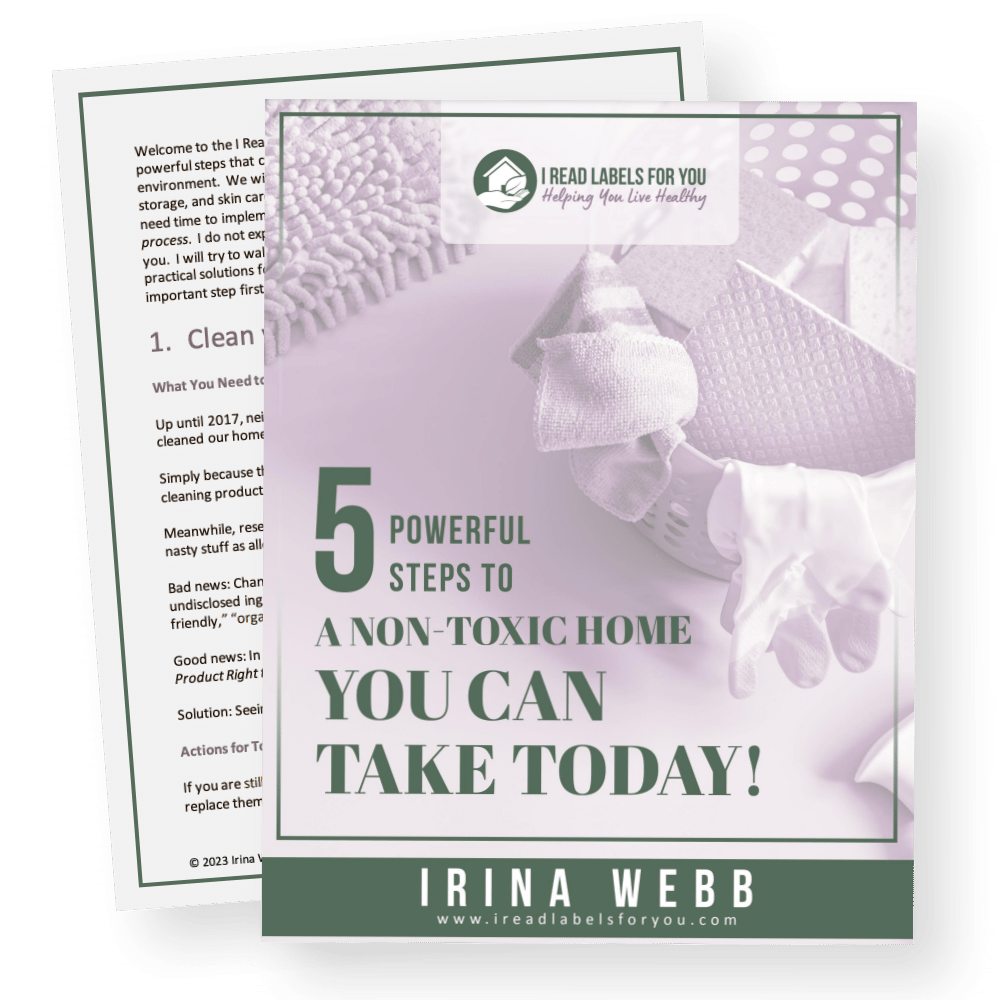
Download The Free Guide!
5 Powerful Steps To A Non-Toxic Home
Join our informed consumer community and get our free guide the “5 Powerful Steps To A Non-Toxic Home”.

 Written by
Written by 

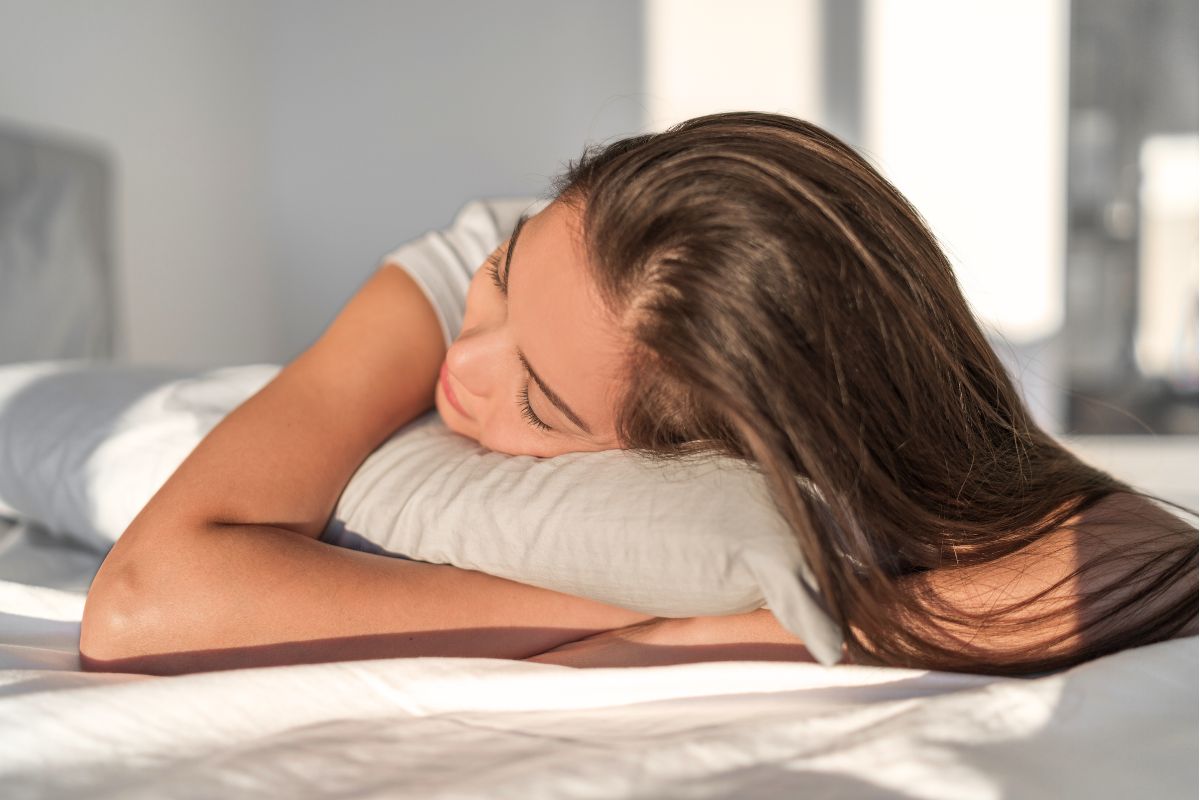
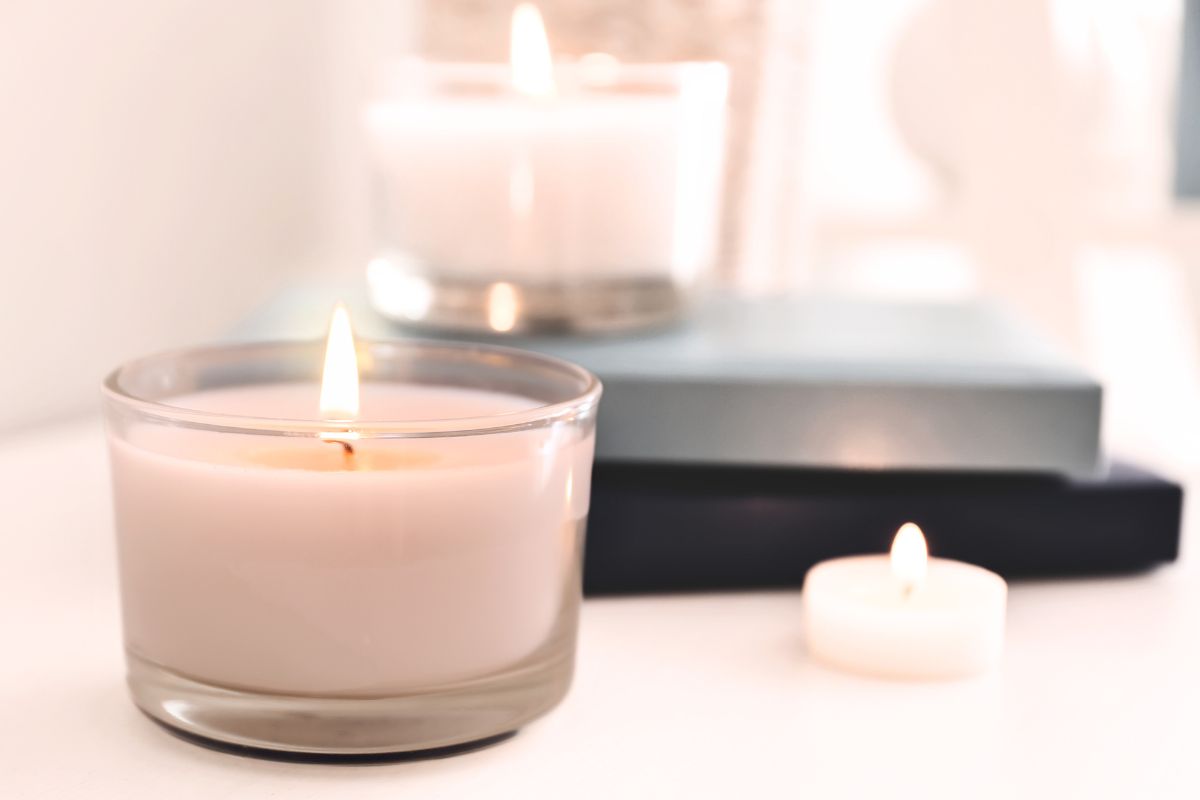

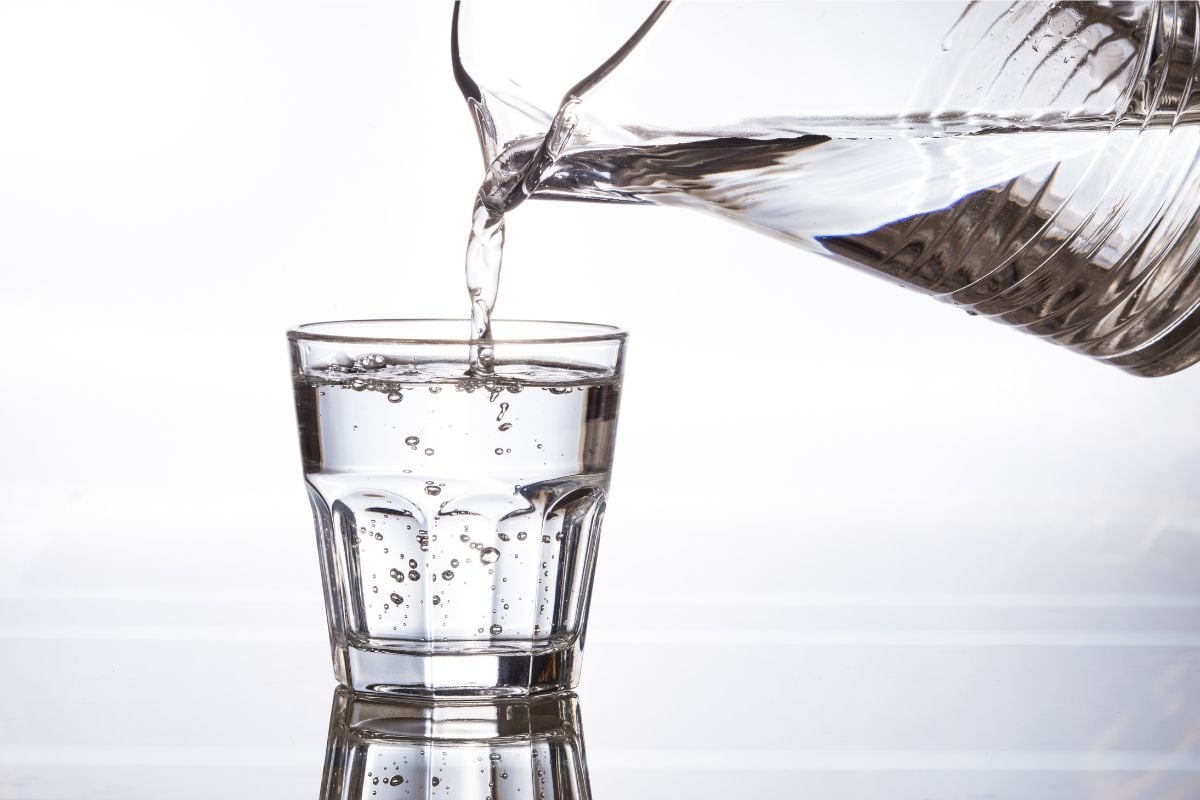
Hi Irina!
Thank you so much for this article.
I was using Whole Foods organic detergent with no fragrance. My clothes always looked dirty, even my bedsheets looked yellow instead of white. Right now when I bought tide unscented, because I didn’t have time to go to Whole Foods, my clothes are bright white.
Do you think, that Tide that has no fragrance, and is hypoallergenic, is still bad for environment and our bodies?
Or you would just say that it depends on a natural detergent? Is your favorite one washes clothes well?
Hi Jelena! Thank you for your comment! We believe that our recent free guide to laundry detergents will help answer your question: https://ireadlabelsforyou.com/safest-laundry-detergents-guide/ To find our opinion on Tide, please press Ctrl+F and type “tide” in the pop-up search bar. As for the cleanliness of the laundry, a lot depends on the water, that is to say whether you are using hard or soft water. In our experience, soft water improves the quality of the laundry significantly. For help with choosing a water softener, check out this listing: https://ireadlabelsforyou.com/product/easy-solution-water-filtration/
Hi Irina, I love your website and guides. I use Humble Suds thanks to your recommendation. However, the company does not recommend it for wool, silk, or other delicate fabrics. Meliora detergent says it’s ok for silk, but I’ve used it for my silk items and the fabric does not do well with it. Do you have any suggestions for detergents for these types of fabrics? Thanks so much!
Hi Carla! We appreciate your interest! Irina will be happy to help you with your question in a private consultation. https://ireadlabelsforyou.com/services/
What do you think of Pure Haven laundry detergent?
Hi, Joan: I use it sometimes. ~Irina
Wondering if there are any options without coconut or coconut oil. My husband is allergic, and I’ve had quite a hard time finding good natural options for a variety of products that won’t cause a reaction.
Thank you for the question, Helen! Turns out, it is not easy to find a laundry detergent without some form of coconut in it! Consider this option: https://ireadlabelsforyou.com/product/branch-basics-all-purpose-cleaner-concentrate/ and this one: https://amzn.to/3BeXGeg
I found that that Molly’s suds just doesn’t work well. I even tried adding vinegar. Biokleen was a little better. Soap nuts do work better, and I want to try them with their oxy boost. Irena- have you found that Fit Organic works better than soap nuts (with or without the eco nut oxy boost)? Thanks!
I used Fit Organics a long time ago. As far as I remember, I do not think it had a better performance. ~Irina
I am totally going to try the soap berries! I have never even heard of them, but they are now on my list! Wanted to ask if Molly’s suds or the laundress has been reviewed by you? Both have very simple and natural ingredients from what I see. Thoughts?
Hi, Tracie: Yes, I have reviewed Molly’s Suds and this is what I currently use: https://ireadlabelsforyou.com/mollys-suds-laundry-detergent-review/ ~Irina
Hi. The link is not working for me. Is this post still available?
Hi, Melissa! Here is the link to the post if you are still interested: https://ireadlabelsforyou.com/organic-laundry-detergent/. Thank you for your interest!
Contrary to what the article says, Green Shield has decent reviews on Amazon, while FIT has absolutely terrible (19 reviews, 1.5 stars). Am I looking at the wrong one?
Hi Natalia: this is an interesting recent development. It makes me what to speak with FIT Organics. I have updated the post to include a link to my new favorite detergent. It is better for the environment too as it is non-liquid. Please read about it here. Thank you for asking. ~Irina
Thank you Irina! I can’t wait to try it!
Hey Irina,
Have you checked out Norwex ultra powder plus detergent?
Yes. And I don’t think they disclosed ingredients back then. I am not sure about now. Thanks. ~Irina
Does regular detergent like Biokleen work for cleaning baby clothes? Or is it too harsh?
Hi Cindy: my fav now is Molly’s Suds. ~Irina
Do you recommend these detergent for use on baby laundry (just clothing not clothe diapers)? Or is there a better baby laundry detergent brand you would suggest?
Hi, Cindy! Sorry I missed your comment. Were you able to find a good detergent for cloth diapers? Have you tried Molly’s Suds? What are you looking in a detergent besides performance? ~Irina
hi, just wondering if there is a difference between the greenshield regular vs. the baby? is there a need to purchase both? Thanks!!
Hi Sally: I compared the ingredients side by side and found no difference. The price is the same, too.
Hi! So for baby clothes would you suggest one of the above 2 detergents, but maybe do a soap berries product for cloth diapers? Or do you think a soap berries product or either one of the 2 above work for both baby clothes and cloth diapers? The soap berry product I am thinking of using is Berry Plus – Liquid Laundry Soap. What are your thoughts on Seventh Generation Natural Laundry Detergent Packs, Free & Clear, OR Ecover ZERO Laundry Liquid Concentrate? Thanks so much!
Hi, Jessica! Yes, soap nuts work great for cloth diapers. Please read my post about that here. At the moment my favorite is FIT Organics detergent in terms of ingredients and performance. Thanks!
Would soap nuts be better than the above recommendations for eczema children ? I have always followed the recommendations from the eczema foundation for products, but have found they’re often rated poorly on ewg. Would love advice for an eczema safe low/no toxin detergent!
Hi, Susan: Eczema is such a complex matter. I am not sure whether soap nuts are safe for eczema. ~Irina
Why aren’t soap berries, sometimes called soap nuts included in your recommendations? I have been using these for two years and they’re wonderful!
1.) I simply put five of the nutshells in a small draw string bag throw them in my wash and that’s it. I use them about eight times. They were best in hot water, and there’s no need to take them out during the rinse cycle. They also act as a fabric softener so there’s no need to put any in your dryer. (I noticed that the lent is drastically cut down!)
2.) I take the leftover shells and put them in a container. When I have about 20 of them I simply put them in 6 quarts of purified water and boil it down to 2 quarts, about 15-20 mins. I add a couple of quarts of water to the boiled down solution and put it into BPA free spray bottles. This solution will spray down your countertops, bathrooms etc. (You store it in the refrigerator.)
3.) I still keep the leftover shells and dry the shells. You can grind these down in your coffee grinder and use it with baking soda or soap nut solution to scrub your tubs and toilets!
4.) You can take a few new soap nuts, put them in a jar of purified water, shake them up and it turns into a foam that you can use for shaving or washing your hair.
5.) The most exciting use I found just recently, was to put them to a test in my dishwasher! I simply take five soap nuts, put them in the small bag, leave them in my silverware carrier and wash up to 8 loads of dirty dishes! This is absolutely fantastic as there are no harsh chemicals left! I still don’t wash my stainless steel pots and pans in my dishwasher, but I suppose I could now. I don’t have to worry about handwashing separate dishes when people are sick.
There are some great YouTube videos on soapberries/soap nuts and their uses.
In researching the brands that I choose to purchase I came across warning not to use soap berries from China.
I think more people need to talk about this product. It’s 100% biodegradable, comes in a cardboard box, no plastic!, and it’s so inexpensive when you buy several boxes at a time. After I tried it, I sent every single one of my children, my parents and siblings 100 load size boxes to try. It killed me to have to pay the individual shipping for the smaller boxes.
When I located my favorite source “Soap Nuts”, I ordered three 300 lead boxes, and five 100 load boxes to share with friends. I paid the same shipping cost!
The last thing I want to share, I went to a local farmers market one day and was talking to a friend about soap berries. The lady beside me was a professor’s wife who belong to the Sierra Club. She said that she had two soap berry trees in her yard! I have yet to visit her, but was tickled to know she has grown her own supply! How cool is that?
I agree 100%! I have been planning a post about soap nuts. I have included them in the list of products I recommend for people with eczema or for anybody who wants absolutely toxin-free products. Take a look here. Thank you so much for this great information! You rock!
Hi Irina,
Can you suggest safe dish washing liquid. I do not use dishwasher. I usually wash dishes with hands.
Im using method now but i want to switch to Seventh generation which im using from 4 yrs as even after washing the dishes still i can smell the method soap,
Thanks
Hi Ramya!
I will be coming out with a post about dishwashing liquids. Please subscribe to the blog. I have a feeling you will find a lot of good information in my newsletters. Thanks! Irina
I was just wondering if you have ever looked in the Shaklee products? I am curious as to what you think of them?
Thank you for your question! I’ve looked at the company and I am not in a position to recommend their products on my blog.
Do you have any experience with Molly Suds or Rockin Green? I’ve used Green Shield but didn’t feel my clothes got very clean (and I pre soak the stains). I don’t need a product that smells good, just one that is safe and does a decent job cleaning.
Hi Stacey, thank you for your comment. I have not used Molly Suds or Rockin Green yet but will check them out when I have a chance. Thanks!
Do you know if this detergent can be used on cloth diapers? I look for features like rinsing clean without residues, no fabric brighteners, no enzymes…
Jessica: thank you for asking this great question. Green Shield detergent is absolutely safe to use even for the most sensitive people. If you ask about its performance, you might want try Green Shield baby laundry detergent specifically designed for cloth diapers. Take a look here. Do not hesitate to let us know how you liked it. In fact, soon I will be hosting a giveaway sponsored by Green Shield Organic. Make sure you subscribe to my blog, not to miss it.
I’m all about organic, non-toxic, Eco-friendly and gentle detergents…but when it comes to washing cloth diapers, it is crucial to have a detergent that works to prevent ammonia build up and cleanses waste properly to ensure the diapers don’t cause burns to a little one’s bum. I appreciate this article and would use this detergent for my own laundry, but I’m curious if it passes the Fluff Love University tests for quality cloth diaper detergent. Most “cloth diaper gentle” detergents do not.
Thank you, Sarah, for raising a valid point. Yes, washing cloth diapers is a challenge especially if you have hard water. You almost need a super strong detergent, which normally means a toxic detergent, to wash cloth diapers, which infringes on the purpose of switching to cloth diapers. I experimented with cloth diaper washing when my son wore diapers and found that you can use milder detergents with them if you do pre-rinse and once in awhile I had to soak them in hot water with dishwasher liquid and vinegar to get rid of ammonia build up, which was what produces the smell. Anyway, I can talk about it forever. The long story short is that Molly’s Suds does NOT pass the Fluff Love University test. However, Molly’s Suds did an extensive research with moms groups and this is what they concluded. Let me know how it works for you if you decide to try it. And I would love to hear from other people about cloth diapering washing. ~Irina
I agree! On top of that soaps are not meant to be used in washing machine unless you want to buy a new washer every year(highly doubt that!) major detergent build up and mold! Soaps and detergents are not the same!! Especially more so if you have hard water. Coming from a repair tech I seen this too many times with people trying to go “natural” or make DIY detergents. Even if you do happen to not have hard water and your clothes is coming out clean, your washing machine is taking a huge beating with soap based products. Mold mold mold. And soap buildup INSIDE the tub you can’t see. Please stop recommending these to people, you are definitely going to void warranties and have to buy a new washing machine. If you ask me mold is just as bad as the toxic ingredients you are trying to avoid.
Thanks for this! Wondering if you’ve ever tried plain white vinegar to wash clothes? I find that it works great and is a lot cheaper.
Interesting… I have not tried it yet. Thank you for the recommendation!:)
Hi! I regularly use white vinegar for washing my workout clothes, or anything else that might have a strong odor to it. It works beautifully. I’ve never used it alone in the wash, but I imagine it would work.